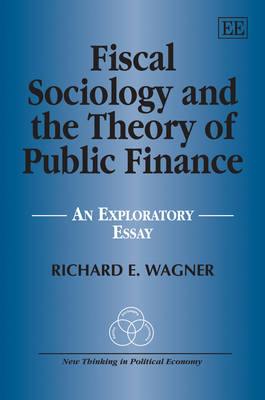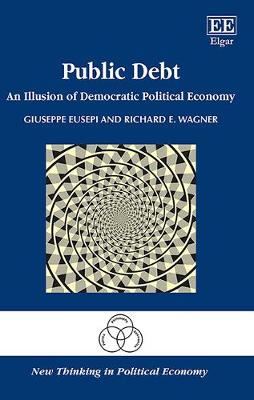New Thinking in Political Economy
3 total works
Some of the book's defining characteristics include:
- Budgets emerge through organizationally constituted political entrepreneurship
- Government is construed as a process of interaction and participation and not as a unitary entity of intervention
- Government and markets are incorporated into a unified theory of property which is traced to human nature and its requirements for both autonomy and solidarity.
Richard Wagner's book will be of interest to researchers in public finance, public choice, Austrian economics, political science and public policy.
Public Debt provides an alternative orientation that explains why concepts of public debt that are relevant for authoritarian regimes are not relevant for democratic regimes. It examines public debt in cooperative and monopolistic democracies as well as the corrupting quality of public debt in democracy. Including topics such as macro guidance within a Machiavellian approach, public debt as systemic lying and as a shell game, economy as an ecology vs. economy as an engine, individual vs. group action and cooperative state as ideal type, this book is a unique and refreshing approach to the material.
This comprehensive and cohesive sourcebook will serve as a critical resource for academics interested in public debt and political economy.
- Randall G. Holcombe, Florida State University, US
Economists typically treat government as something outside the business realm, a sort of 'Lord of the Manor'. Richard Wagner argues that this is the wrong approach and can ultimately be destructive to capitalism and to society.
Modern governments are a peculiar form of business enterprise. They face the same problems as regular businesses, such as ascertaining demand and organizing production, and act within the system in a way that can lead to a parasitical relationship with the market. Largely rooted in political economy, this book develops new theoretical ideas and formulations to explain why democracy is a difficult form of government to maintain. The author explores how and why limited governments can morph into a system of destructive politics, and looks at ways to escape this process.
This dynamic book will be useful for public choice scholars, economists, political scientists, and lawyers who are interested in political economy in its various guises.


